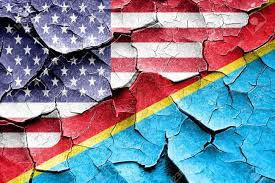The Silent Cry of Congolese Women
- What is Happening in Congo?

- Mar 29, 2021
- 4 min read

In an era where women are finally able to use their voices to speak out against the abuses they experience at the hands of their male counterparts, we've seen movements like the Me Too movement encourage this development. The term "Me Too" was coined by Tarana Burke in 2006 on Myspace to denounce her own sexual harassment. The purpose of the phrase "Me Too" has been to form solidarity and empowerment for all women in the face of sexual assault and harassment, to visibly showcase how many women have survived and can survive. And although much can be said about the race politics within this movement and how it has been co-opted, for the most part it has given a voice to the women of the Western world, it has offered support in spaces where support previously did not exist. Unfortunately, the same cannot be said about women in Africa, and more specifically, women in the Democratic Republic of Congo. These have not been silent but continue to be silenced and are all but forgotten in the fight for their human rights and dignity.
It's known to the world that since the arrival of Henry Morton Stan in 1870, the Democratic Republic of Congo has not known peace. Human lives have been used as collateral damage in the race for Congo's minerals. The loss of life has been recognized, as well as the mutilation of bodies but very seldom does the world acknowledge the sexual violence the women and young girls of this nation have been subjected to for decades.

Women and young girls have been utilized as weapons in the ongoing war in the eastern region of the DRC. The biggest perpetrators being soldiers from neighbouring countries who entered the DRC to look for rebels who sought refuge in the country between the years 1996 and 1998. They used rape, as well as female genital mutilation as a means to humiliate the Congolese people. Women that found themselves being victims of gun rape could no longer bare children, another tactic employed to wipe out the people in the region these foreign armies attacked. By 2011, the DRC had been statistically recognized as the rape capital of the world. It was reported that 48 women were raped hourly in the Democratic of Congo. In 2016, it was reported that 46 children aged 18 months to 10 years were abducted and raped by militias in eastern Congo. In addition to the brutal violence these women and young girls are faced with, many contract disease like HIV and the rape victims that are left pregnant are often rejected by their families and communities.
In an effort to stabilize the region and keep the peace the United Nations Organization Stabilization Mission in the Democratic Republic of the Congo or MONUSCO was established in 2010. However, UN peacekeepers have also been named as perpetrators of violent sexual crimes against Congolese young girls and women. At one point it was found that of the 2000 sexual abuse claims against U.N. peacekeepers and personnel, 700 occurred in Congo. A 14 year old girl fell victim to an attack by a Pakistani peacekeeper in Bunia. On every end, the Congolese woman is under threat. There has been a glimmer of hope though, it has come in the form of Dr. Denis Mukwege.

Dr. Denis Mukwege, is a gynaecologist who was awarded the Nobel Peace Prize for his human activism . His efforts led him to being the world's leading specialist in treating survivor's of wartime sexual violence. The doctor founded the Panzi Hospital in 1999. In October 2012 after he spoke up against the decade long war in the Eastern region of the DRC, there was an assassination attempt on him which ended with his friend and security guard being killed. More and more victims of rape began showing up at his hospital, that is where he found he had to do more than provide medical service but he had to speak up for the silenced. He knew that people are selectively deaf to the voice of women and chose to use his privilege. Dr. Mukwege said, "You can’t operate against violence, you can only abolish it.” The Panzi Hospital then established the Panzi Foundation and has continued in its efforts against use of women and their sex as weapons, it is in this way that a light has broken through in the dark reality of these women. There is a way in which you can support the foundation's efforts, by signing petitions as well as donating to the cause.
So much has happened and continues to happen in the Democratic Republic of Congo, with women and children carrying the brunt of the burden. They have found themselves to be victims of violence, with no consideration of their humanity. And now we demand to be heard, to be seen, to be protected. How much more devastation must occur for the world to open its eyes? How many rivers must overflow after bloodshed for the lives of Congolese young girls and women to be recognized? This is the curse that has come upon the Congolese women and children, who by no fault of their own, have found themselves in this Godforsaken region of the world. The Eastern region of Congo, blessed in natural resources, devoid of light, warmth and safety for its inhabitants. We can no longer be bystanders to these atrocities. There is no excuse for us to remain silent towards the plight of the silenced.



Comments